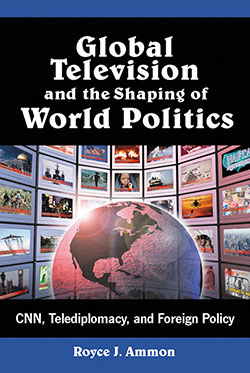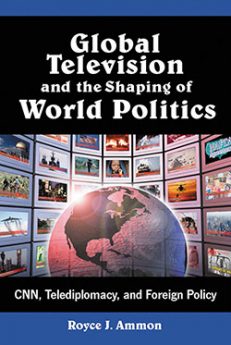Global Television and the Shaping of World Politics
CNN, Telediplomacy, and Foreign Policy
$29.95
In stock
About the Book
In 1995, United Nations Secretary-General Boutros Boutros-Ghali said of the Cable News Network, “CNN is the sixteenth member of the [15 member United Nations] Security Council.” Scholars as well as diplomats have recognized the existence of a link between communications and diplomacy, but up until now the implications of this relationship have been left unexplored. This work examines the historic interconnectedness between communications and diplomacy, how communications have historically determined the practice of diplomacy, and how global television in particular can determine diplomatic outcomes under certain conditions. This work also examines the ways in which today’s broadcasting will shape foreign policy processes in the future and the future impact of global television in world politics.
About the Author(s)
Bibliographic Details
Royce J. Ammon
Format: softcover (6 x 9)
Pages: 207
Bibliographic Info: notes, bibliography, index
Copyright Date: 2001
pISBN: 978-0-7864-1062-0
eISBN: 978-0-7864-5002-2
Imprint: McFarland
Table of Contents
Acknowledgments VII
Preface 1
ONE: An Historic Relationship
1 The Communication—Diplomacy Link 5
2 Paradigms, Communication, and Diplomac 12
3 Diplomacy and Communication: The Results of Linkage 48
TWO: Present Realities
4 The Persian Gulf War and Telediplomacy 65
5 Global Television’s Ability to Drive Policy 88
6 Global Television and Diplomatic Outcomes 96
7 Global Television’s Mechanisms for Driving Policy 130
THREE: Future Potential
8 Today’s Communications, Tomorrow’s Diplomacy 151
Notes 155
Bibliography 179
Index 189
Book Reviews & Awards
“important”—Library Journal; “thorough…recommended”—Choice.





